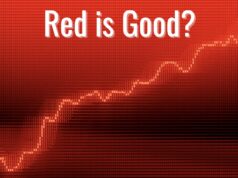Healthcare – Creating Value for Patients
The benefits of Electronic healthcare records are a polarizing topic with healthcare providers. Standardization and electronic workflows have their upsides, but many are developed to optimize billing and payments, and are not designed with the provider in mind, let alone the patient. Atul Gawande delivers a magnificent essay on “Why Doctors Hate Their Computers” in the New Yorker.
Hospitals use a similar model to the department stores of the days of retail lore and may meet the same fate. It's time to consider bringing healthcare to the patient instead of vice versa.
It's been 20 years since “To Err is Human” was published, estimating that 100,000 deaths a year in the US are a result of preventable medical errors. Did this lead to a safety revolution? Not really, according to an article in Health Affairs that suggests a lot of new data is collected and analyzed as a result, with variable results.
Operational Excellence
“Good jobs” that engage staff are ones that provide a connection to purpose. Some organizations continue to cling to the hopes that a small raise or an occasional gift card will deliver them skyrocketing levels of engagement, but the truth is that a large majority of staff are actually willing to take less money for work that is more meaningful.
Connecting work to purpose is an imperative for today's managers – focusing on speed and quantity is obsolete and unhelpful as I offer up 12 reasons to stop using individual numerical quotas for your workforce. This applies especially to knowledge work where the “keep everybody busy” paradigm persists. Leaders in knowledge work could benefit to learn from manufacturing about how to create pull and align work to customer demand instead.
Digital transformations and agile are ubiquitous in large organizations. Many organizations “do agile” and engage many external experts while maintaining their traditional command and control leadership styles, resulting in a predictable failure to scale agile and generate its full benefits. César
Daily huddles are a low cost and effective method to provide alignment to purpose, engage staff in improvement, and reinforce ideal behaviours. Healthcare continues to demonstrate direct benefits to patients and staff through huddles in as little as 10 minutes a day, The Cleveland Clinic CEO touts the staff's ability to solve problems in real time through their tiered-huddle system.
Leading & Enabling Excellence
Unemployment rates are low, but so are employee engagement scores. Bob Chapman, CEO of Barry-Wehmiller and author of the outstanding book Everybody Matters: The Extraordinary Power of Caring for Your People Like Family, encourages leaders to embrace a Human Revolution where jobs are based on respect for people and dignity.
Is there a place for fear in a manager's toolkit? Deming talked long ago about the need to drive out fear from the workplace. Amy Edmondson's new book the Fearless Organization bolsters his assertion with research that suggests that psychological safety is essential to building a better organization.
Coaching – Developing Self & Others
Multi-tasking doesn't work according to almost all contemporary research on the topic – yet our desire to juggle more than we can handle persists. Focus on doing one thing at a time.
Work continues to change but the role of manager fails to keep pace. Staff require “managers to become truly human again: to be people who love to learn and love to teach, who liberate and innovate, who include others in the process of thinking imaginatively, and who challenge everyone around them to create a better business and a better world, according to this HBR article on 5 ways the role of manage has to change.
Books, Videos, Podcasts
Check out this HBR Ideacast “Stop Initiative Overload”.
Insurance organizations are moving from initiatives-based transformation to holistic lean management systems. Diane Lopes of Aetna discusses this transition on this podcast.
Get These Mixtapes via Email
Please scroll down (or click) to post a comment. Connect with me on LinkedIn.
Let’s work together to build a culture of continuous improvement and psychological safety. If you're a leader looking to create lasting change—not just projects—I help organizations:
- Engage people at all levels in sustainable improvement
- Shift from fear of mistakes to learning from them
- Apply Lean thinking in practical, people-centered ways
Interested in coaching or a keynote talk? Let’s start a conversation.









